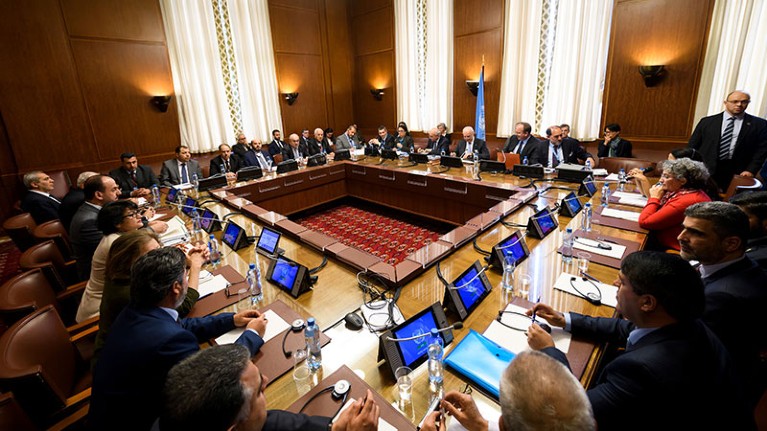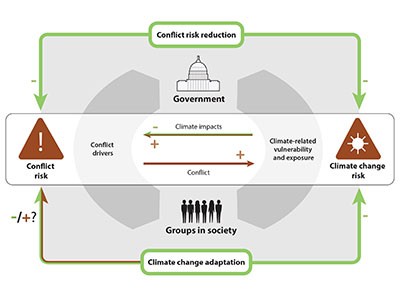
Gathering experts in a room can — sometimes — help in finding common ground.Credit: Fabrice Coffrini/Reuters
Will the risk of armed conflict increase in a warmer world? This question is one of the most controversial in the study of interactions between the climate system and human society, and the answer is critical for estimating the economic and humanitarian toll of climate change.
This week, Nature publishes the results of an expert elicitation that addresses this issue (K. J. Mach et al. Nature https://doi.org/10.1038/s41586-019-1300-6; 2019). Expert elicitation has emerged as a method for gathering the collective expertise of diverse specialists to generate a synthesis of the evidence and the specialists’ often conflicting views. The goal is not to generate definitive answers, but to quantify uncertainty and highlight areas of overlap.
Read the paper: Climate as a risk factor for armed conflict
In this case, 11 experts from various backgrounds, including economics, political science, geography and environmental science, came together for 3 days of interviews by elicitation leaders and for group discussions until a consensus was reached.
The conclusion: climate has already increased the risk of armed conflict, but the effect is small relative to the effects of other factors such as unexpected economic events and scarcity of natural resources such as food. The group estimates that future climate change might heighten conflict risk beyond historical patterns.
The outcome might not be surprising — but the deeper importance of the work lies in the approach, and in the recognition that common ground, however modest, can emerge from diverse and opposing lines of evidence.
Many of the most pressing questions that society faces are just as thorny and multidisciplinary. Expert elicitation offers one way to make sense of this complexity. It is already gaining ground in environmental risk assessment and public health. Other fields would do well to consider whether their hardest problems might be tackled in this way.

 Read the paper: Climate as a risk factor for armed conflict
Read the paper: Climate as a risk factor for armed conflict





